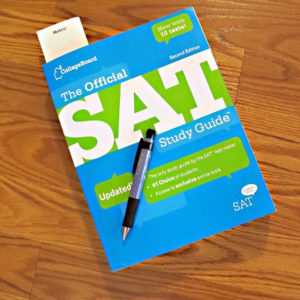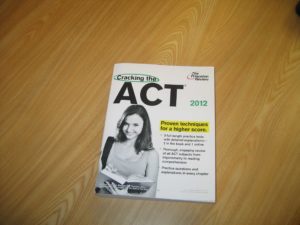Is College Board really helping students?
College Board is a supposed non-profit designed to help students–but when the costs seem unnecessary, the result is unequal playing ground for students from different economic backgrounds, and students are taking classes that discourage meaningful discussion, is College Board really helping them?
Cari Spencer
Editor in Chief
Like many other high school students, the name “College Board” gives me a feeling similar to a four-year-old presented with a plate of vegetables. To put it simply, I’m not a fan of the blue acorn logo and all that it stands for. I’m not a fan of how much time I’ve put into College Board administered tests; I’m not a fan of the amount of money I’ve spent on tests, prep books and sending scores; and most of all, I’m not a fan of how inseparable the corporation seems to be from my future.
To be fair, many of my complaints are derived purely from the stress of national standardized tests, but the further I’ve trekked into the college application process, the more I’ve realized how entirely bizarre College Board’s power is. Furthermore, I’ve come to realize how disproportionately its existence affects students of lower income levels and their chances at “elite” success.
College Board is essentially creating exams that students have little to no choice of opting out of. I plan on applying to Emory University, but in order to be a competitive applicant I must submit an ACT or SAT score, I should submit at least two Subject Test scores and I should have a plethora of AP classes and scores to show for myself. There was no law that made such testing a mandate, it was all done in the hands of big testing corporations, namely College Board.
Not only do all of these application hurdles and score goals make me want to scream from stress, they also cost me money. A lot of money.
So far, I have spent $390 on the six AP tests I have taken in high school. By the end of May (if I decide to take all 5 of my AP tests) I’ll have spent $715. Orono students get an AP exam reduction from $95 per exam to $65 per exam. Without that reduction, I could’ve potentially spent $1045 in high school on AP tests alone.
The amount of money that students hand over to College Board is monstrous, but it’s also accepted as part of the millennial and Generation Z high school experience. Kids that try to get into competitive schools work themselves dry in an attempt to be the perfect college applicant. College Board claims in the website’s “About Us” page that it “is a mission-driven not-for-profit organization that connects students to college success and opportunity,” but when all the board has done is insert itself into the application process by becoming a checkbox students need to fill–SAT? Done. Subject Tests? Done. AP exams? Done.–it seems to me like it’s taking on a position that no company should have the power to have.
For low-income students, there’s the possibility of a $32 reduction per AP exam, according to the official College Board website. Some students are eligible for an SAT fee waiver, but that only covers two SATs and two SAT Subject Test registrations (each subject registration allows up to three tests at a time), according to the “Counselor’s Guide to Fee Waivers,” a pamphlet distributed by the College Board in an effort to reach educational equity.
These are great steps forward, but they don’t account for the fact that wealthy students can “play the game,” while middle to low income students have to limit the amount of times they can take each test. Students with money can pay for tutoring, prep classes and books; they can treat their first test attempt as a “practice round” then try again without worrying that they’ll waste their waiver or, if they don’t qualify, the $64.50 for an SAT with Essay. While the College Board has partnered with Khan Academy to offer free test preparation, the inescapable disparities still exist.
So why does the whole process cost so much? Where is the money going? For the Dec. 2015 fiscal year, College Board made $915,776,813 in total revenue, with a net income of $77,359,035 after the total functional expense reduction, according to the Dec. 2015 Form 990 (an IRS form that provides the public with information on nonprofits).
David Coleman, the president and CEO of College Board, made $742,278 in reportable compensation from the organization, plus nearly $155,700 in other compensations from the organization and related organizations. The amount of money and therefore power that College Board and its constituents wields is questionable, considering how ambiguous the end result of all of that “non-profit” money is.
But beside the questionable costs and salaries are the issues of whether or not the tests are even right for students, and whether or not College Board should have the ability to help set standards.
Last August I realized that most of the schools on my college list highly recommend SAT Subject Tests. Granted, I should have figured that out earlier, but the fact that I spent the rest of my summer studying preparation books in a library, rather than with my friends, still irritates me. One of the most formative months of my teenage youth was spent not in exploration and curiosity, but indoors, with practice tests.
What made the situation even more aggravating was the fact that I had already spent money on AP tests–a test also administered by the College Board–and had already proved my proficiency in high-level math, English literature and history. Why did I have to hand $80 to a corporation that already took my money three months prior when I tested in the exact same subjects? Why were both scores necessary? At this point, more colleges and universities need to give the option between one test or the other–or better yet, neither–but the fact that this application checkbox still exists comes down to College Board designing it in the first place.
By creating and administering exams, College Board sets standards. This doesn’t just apply to the unnecessary Subject Tests. It applies to high school curriculums as well. These quasi-standards demand too much course coverage in too little time, resulting in fast tracked curriculums with no time for students to explore meaningful tangents.
In my College in School Political Science class, there is no AP test come May, so rather than adhering to a strict schedule that allows little deviation for fear of falling“behind,”we engage in discussions that tie in current events, like the Kavanaugh hearing.
When asked about the lessons in school that have stuck with me, it’s the content that never made it into the AP exams that I respond with. For the sake of students’ sanity, pocketbooks and equity in the college process, College Board should step down from its throne—or at least step down to a smaller one.
Now it’s just up to colleges to follow in the footsteps of other institutions, like Bowdoin College, that have made standardized tests optional. Doing so would not only encourage students to pursue intellectual curiosity rather than perfect scores, but also even the playing ground between students with endless resources and students who don’t.
College Board is just a big business, not a government-sanctioned operation. It’s time we remember that.




























































